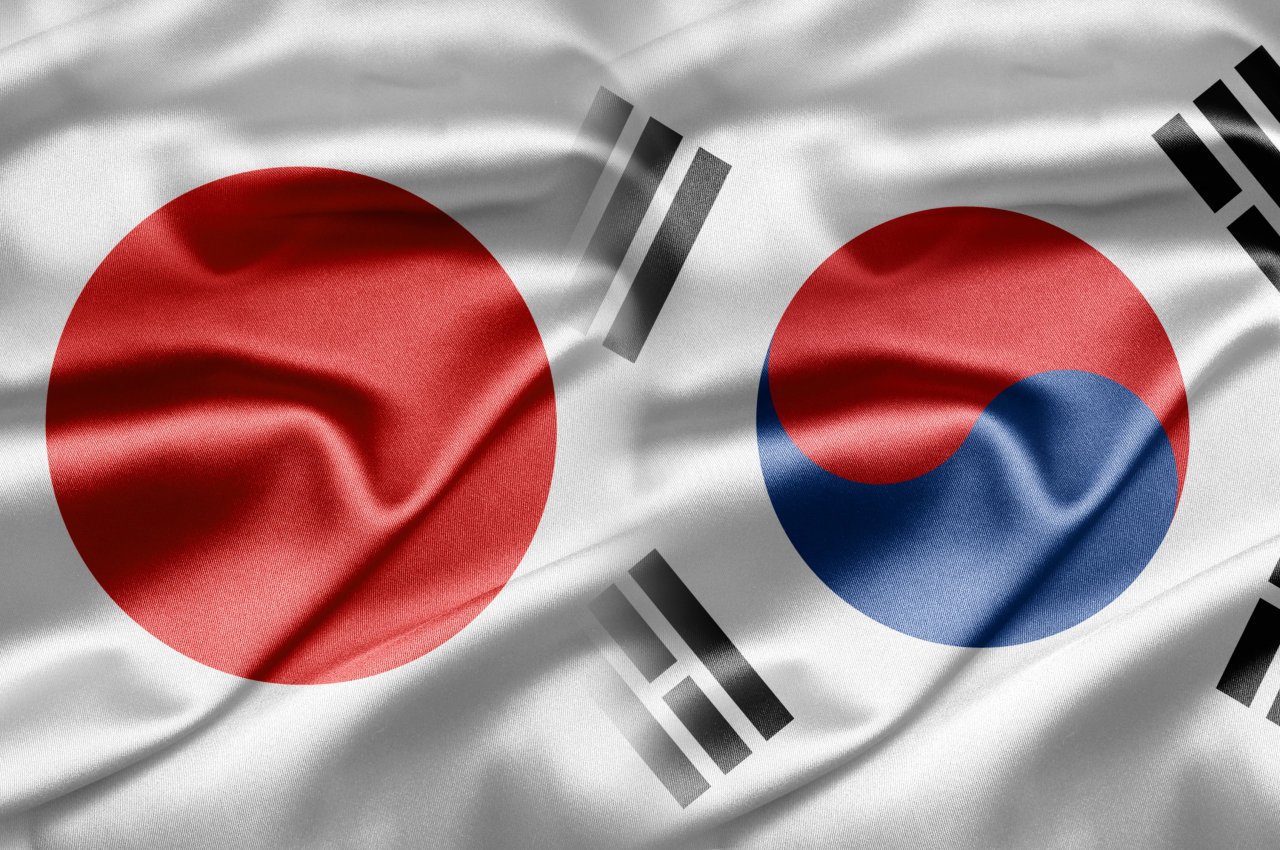 |
Flags of Japan and South Korea (123rf) |
South Korea surpassed Japan in major economic indicators over the past 30 years, but still lags behind in technological competitiveness, a report published by the Federation of Korean Industries said Thursday.
The report, which compared the economic development of the two countries from the early 1990s onward, cited several international rankings to back up its claim for Korea’s advances.
The 2020 IMD Competitiveness Ranking, for one, placed South Korea at 23rd place and Japan at 34th. It was a major overturn from 1995, when South Korea, at 26th, was far behind the 4th-placed Japan.
In the Competitive Industrial Performance list, created by the United Nations Industrial Development Organization and used to measure a country’s industrial productivity, Korea shot up to 3rd place in 2018 from 17th in 1990, while Japan climbed down from 2nd place in 1990 to 5th in 2018.
Three major credit rating agencies – Standards & Poor’s, Moody’s and Fitch Ratings – valued South Korea’s sovereign credit rating two levels higher than that of Japan’s, the report showed.
The gap between the two economies also narrowed in macroeconomic figures.
Korea’s nominal GDP grew 476.3 percent from 1990 and reached $1.6 trillion in 2020, which is about a third of Japan. But 30 years ago, the size of Korea’s economy was less than 9 percent of Japan’s nominal GDP.
In international trade, South Korea rapidly caught up with Japan, but was still falling largely behind the amount of overseas investments.
Korea posted $513 billion in exports and $468 billion won in imports in 2020, which is 80 percent and 74 percent the level of of Japan, respectively. However, Japan’s total direct investment overseas was 3.6 times that of Korea, the report showed.
While Korea caught up with and even surpassed Japan in many areas, it still fell far short in science and technological fields, the report said.
Korea’s deficit with Japan in materials and parts trades nearly doubled from $8.3 billion in 1994 to $15.4 billion in 2020, signaling a deepened dependence on the neighboring country for the critical parts and components.
Especially vulnerable was Korea’s competitiveness in the field of basic sciences. While Japan has produced 24 Nobel Prize winners over the past 30 years, South Korea has had none.
The KFI called for the government to provide aggressive and long-term support for research and development for Korea’s economy to maintain growth in the future.
“Korea’s accomplishment over the past 30 years is astonishing. We are seeing the gap narrowing down or even being overturned in major economic indicators,” said an official from the KFI. “However, we are still seeing a disparity in the investment and competitiveness in the field of basic sciences.”
By Kang Jae-eun (
kang.jaeeun@heraldcorp.com)








